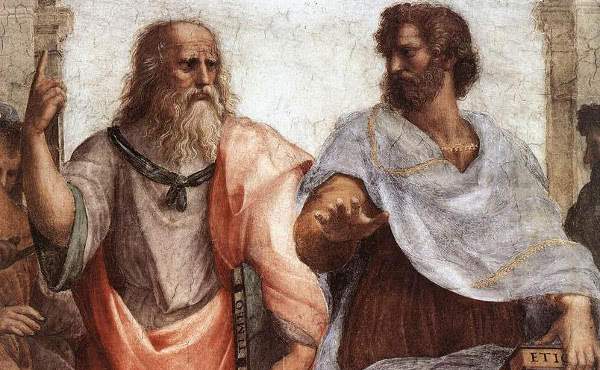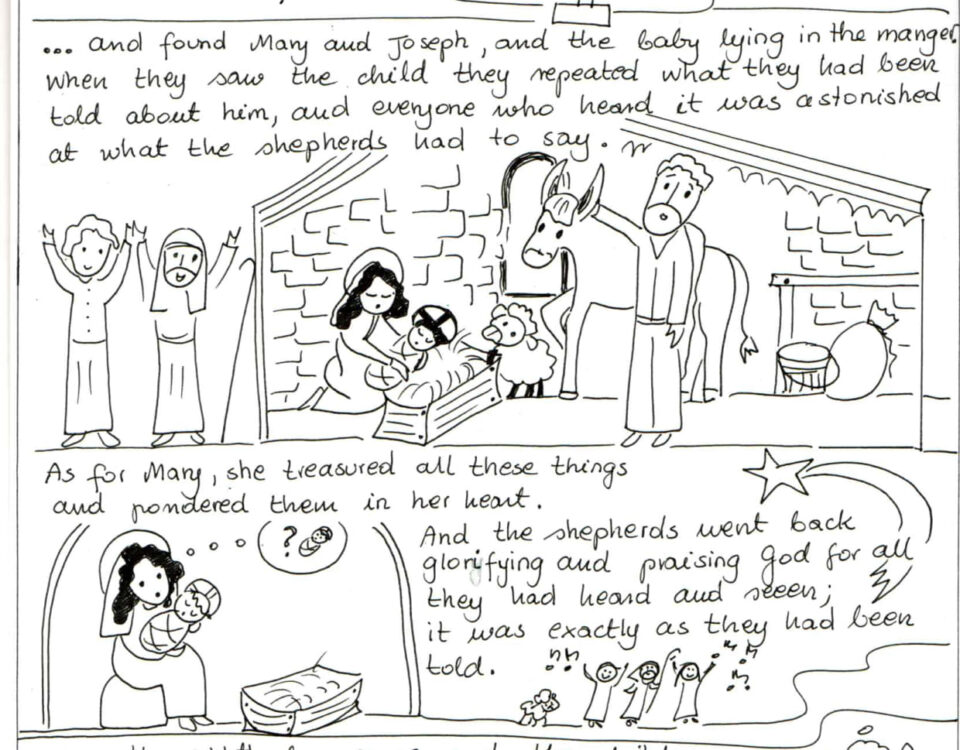Divine Retreat Centre UK – Official Website
Who Knew Turning the Other Cheek Could be so Amazing!
August 23, 2022Ripples of God’s Mercy
September 27, 2022Abraham’s Sacrifice- The True Meaning “Abraham!” And he said, “Here I am.”(Genesis 22:1)
The biblical story of sacrifice by Abraham seems very tormenting and unfair at first sight. How can our God be so mean to take away Abraham’s only son Isaac whom He had blessed him with at the ripe old age of 99! Don’t you feel that Abraham, the most faithful and steadfast servant of God was being put through deep agony and suffering for no apparent reason?
My dear followers of Christ, The Holy Bible is indeed a marvel to behold! Let’s take a look at the secrets behind Abraham’s sacrifice unfold right before our eyes like a breathtaking carpet being spread for a banquet feast.
Isaac – The Pre figuration of Jesus
The sacrifice of Abraham on Mount Moriah is a pre-figuration of the sacrifice of the Son of God on Mount Golgotha. Biblical scholars point out how these two instances, one from the Old Testament and the other from the New Testament fit perfectly into each other like a jigsaw puzzle- a divine affirmation that the Holy Bible was undeniably penned through constant invocations from the Holy Spirit.Abraham was asked by God to sacrifice his only son Isaac as a burnt offering; Jesus the only son of God was sacrificed on the cross for the sake of mankind.
The sacrifice of Abraham is a foreshadowing of God’s willingness to sacrifice His only son for the salvation of mankind. God’s love for his most unique creation is undeniable and eternal.
Abraham and his Testing period
When God calls Abraham, he responds, “Here I am.”
Instant response!
God doesn’t have to call him several times. Neither did He have any difficulty in speaking to Abraham whatsoever.
When Isaac was about thirty years, God suddenly asks Abraham, “Take your son, your only son, whom you love—Isaac—and go to the region of Moriah. Sacrifice him there as a burnt offering on a mountain I will show you.”
Now, there are many mountainous regions in Israel. But why did God choose Moriah as the venue for the burnt offering of Isaac?
We see that God later builds the temple of Jerusalem on Mount Moriah. Abraham’s sacrifice on Moriah is a pre-shadow of Jesus’ sacrifice on Mount Golgotha, which exists in the same region as Moriah. God is already showing the whole humanity as to what is going to happen on the same mountain. God’s plans are splendid!
2 Chronicles 3:1 talks about Solomon building the house of the Lord in Jerusalem on Mount Moriah, where the Lord had appeared to his father David.
During the time of Abraham, pagan religions promoted human sacrifice extensively. It was the accepted norm. However, Abraham firmly believed that his God was not the one who promotes human sacrifice.
But, quite unexpectedly Abraham hears God command him to take his son and sacrifice him as a burnt offering.
His only son! How shocking for Abraham! How can he sacrifice his only child, it’s impossible!
We all have to go through testing periods during our lives on earth. God permits it for many reasons; sometimes even to test our faith.
Defying all odds, Abraham does not hesitate for a moment in obeying God.
Why did Abraham obey God without a second thought? How did he know that the voice belongs to his God and not to an evil spirit?
We must know that it is not for the first time that Abraham is listening to the voice of God. He had been listening and obeying the voice of God many times already. Therefore, the voice was familiar to him and he knew that the command indeed came from His God.
But how could Abraham accept the command of God without the slightest hesitation? Sacrifice and Worship
In order to understand Abraham’s selfless surrender to the Almighty’s will, let us see how Abraham responded to the command.
Abraham rose early in the morning, cut the wood for the burnt offering, saddled his donkey, took two of his able young men along with his son Isaac and set out to the place in the distance that God had shown him. He did this all himself as he was deeply pondering on what God has asked him to do.
Abraham’s painful journey started thus! The moment God said ‘’sacrifice your son’’, he had already lost his son. It was so distressing for a father, which reflected in his silence all throughout the preparation.
On the third day Abraham looked up and saw the place far away. After three days of suffering in silence, Abraham speaks to his young men: “Stay here with the donkey; the boy and I will go over there; we will worship, and then we will come back to you.”{ Genesis 22:5}
Surprisingly, on the third day Abraham got his son Isaac back, safe and sound. A ram was sacrificed in his place.
Do you can see the connection?
Jesus, the only son of God sacrificed himself on the cross, and on the third day he was resurrected. Isaac came out from the alter Abraham had prepared from the wood he carried for sacrificing his son- a pre shadow of Jesus’ resurrection.
Sacrifice is the truest form of worship
The Catholic Church teaches us that real worship is sacrifice i.e., The Holy Mass- the celebration of sacrifice of Jesus on the cross.
Remember that we are not re-enacting the sacrifice or remembering it during Holy Mass, but re-living the same sacrifice every time Holy mass is conducted at the altar.
When Abraham tells his men that they will worship and will go back to them, he knew about this sacrifice.
Did Abraham at any point think that God will intervene? Yes, he did!
Abraham believed that he had to sacrifice his son as God wants him to do. He believed that by sacrificing his son, God will not take his son away from him, but will resurrect him and bring him back to his side.
He believed with complete faith, which reflects in his statement, ‘’we will worship, and then we will come back to you.”
However, until then no one had ever been resurrected or had heard about resurrection. Then what made Abraham believe that Isaac will be sacrificed, but brought back?
Abraham remembered and believed the word of God, and the promises that the Almighty had given him.
Genesis 17:16 speaks about God’s promise to Abraham, “I will bless her, and moreover I will give you a son by her. I will bless her, and she shall give rise to nations; kings of peoples shall come from her.”
God told him that he will give “A Son” and from him there will be generations. Abraham believed that the same God who gave him ‘The son –Isaac’ will also resurrect him to fulfill His promise of a nation and kings of peoples which shall arise from Isaac; a very clear promise that it is only through Isaac, and no other offspring that descendants shall be named for him.
Abraham’s total belief in resurrection is reinforced in Hebrews 11:19, ’’He considered the fact that God is able even to raise someone from the dead—and figuratively speaking, he did receive him back.’’
Abraham fought his testing period by strong faith, and as a reward he became the father of all nations. He believed every promise that was given to him by God.
Total surrender of son to the father
Genesis 22:6- Abraham took the wood of the burnt offering and laid it on his son Isaac, and he himself carried the fire and the knife. So the two of them walked on together.
Abraham’s sacrifice of Isaac was not a forced sacrifice. Just like Jesus, Isaac willingly and voluntarily allowed himself to be sacrificed by his father.
We see Isaac carrying the wood on which he is going to be sacrificed, just like Jesus carried the wood (cross) on which he was sacrificed. The father and the son walked together in communion with each other. When they came to the place that God had shown him, Abraham built an altar there, bound his son Isaac, and laid him on top of the wood.
At this point, Isaac could have escaped if he wanted to, him being a strong and able man. But, he permitted his father to bind him; silently and willingly obeyed him- a true pre-figuration of Jesus Christ who wholeheartedly surrendered to his father in heaven.
Isaac himself carried the fire and the knife. Fire is the symbol of the Holy Spirit and knife is the symbol of suffering and passion. Isaac knew that there is no lamb for the sacrifice. When Abraham tells him that God himself will provide the lamb, Isaac believed his father completely.
As a symbol of His commitment and covenant to Abraham, God protects Isaac. We see that God gives a ram for the sacrifice. Abraham looked up and saw a ram caught in a thicket by its thorns; the pre shadow of the Lamb of God- Jesus caught up in the Crown of Thorns. Abraham offered it to the Lord and called the place “Yahweh-yireh” which means “the Lord will provide.” The Lord provides for those who trust in Him…
The lamb symbolizes the Son of God-Jesus who was offered as a sacrifice on the cross for our sins.
The lamb is sacrificed, Isaac is saved; Jesus is sacrificed, we are all saved. Everything is connected seamlessly, though these incidents happened in a span of thousands of years and distances apart. God planned everything in such a way that these are all well connected fulfillments of prophesies.
How do we deal with our ‘Testing Period’?
Abraham had the courage and faith to believe in the ‘unknown resurrection’. Do we have faith to sacrifice our beloved ones at the behest of God? Do we trust Him enough like Abraham to resurrect our beloved from the dead?
By faith Isaac invoked blessings for the future on Jacob and Esau.
When God finds that we are truly willing to make the sacrifice He demands from us, He often does not require it from us.
My dear brothers and sisters, these are the words of God that give us assurance that if we have strong faith , and are willing to sacrifice our lives as per His Will; if we are willing to sacrifice our joys, hidden pleasures and secrets for Him, He will bless us mightily.
Do we answer God’s call instantaneously like Abraham?
If God had to call us, He would have had to do that many times; shouting and screaming to catch our attention. Oftentimes, when we happen to hear his voice, all we ask Him would be, “who are you”?
Sometimes we complain about not being able to listen to the voice of God. This is because when God prompts us, we are not receptive towards Him like Abraham. Our God is always speaking to us through our conscience, through our teachers, scriptures, preachers, spiritual fathers and through many other ways and means. We can recognize the voice of God instantly if we are focused and are thirsting for His presence.
Let us focus our attention to catch the voice of God at the first instance of His calling, and respond, “Here I am.”
Amen



